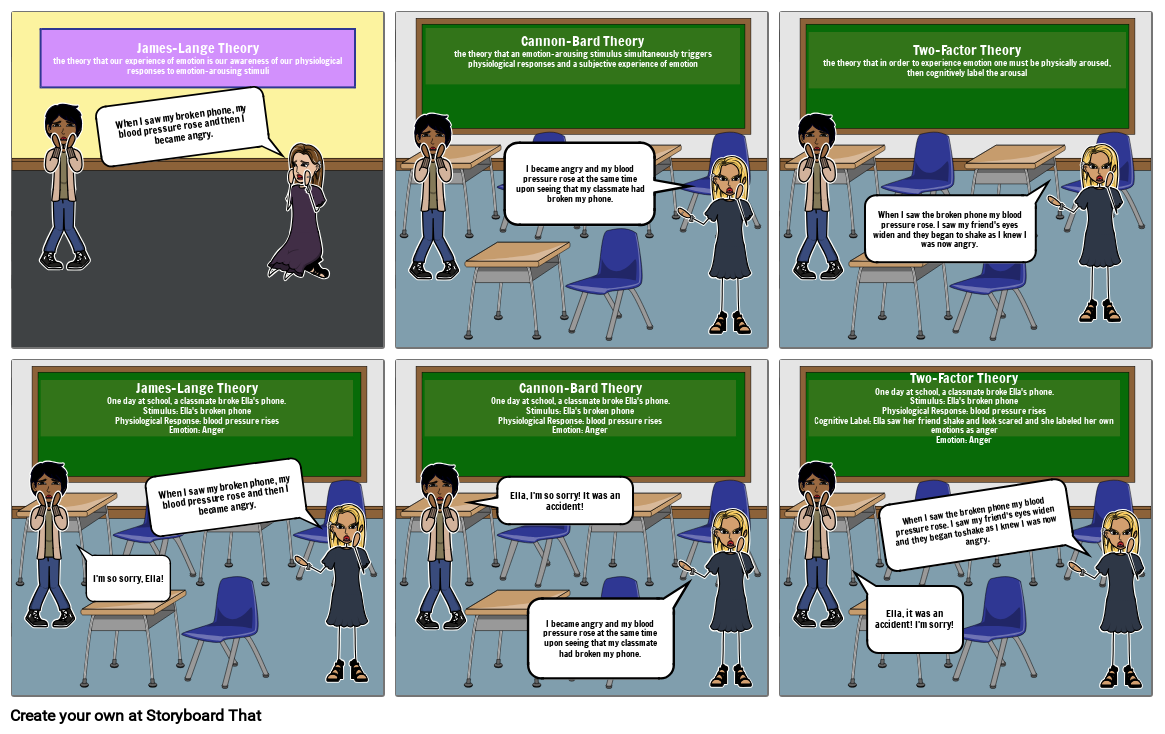Untitled Storyboard

Storyboard Text
- Slide: 1
- James-Lange Theorythe theory that our experience of emotion is our awareness of our physiological responses to emotion-arousing stimuli
- When I saw my broken phone, my blood pressure rose and then I became angry.
- Slide: 2
- Cannon-Bard Theorythe theory that an emotion-arousing stimulus simultaneously triggers physiological responses and a subjective experience of emotion
- Slide: 3
- Two-Factor Theorythe theory that in order to experience emotion one must be physically aroused, then cognitively label the arousal
- When I saw the broken phone my blood pressure rose. I saw my friend's eyes widen and they began to shake as I knew I was now angry.
- Slide: 4
- James-Lange TheoryOne day at school, a classmate broke Ella's phone.Stimulus: Ella's broken phonePhysiological Response: blood pressure risesEmotion: Anger
- When I saw my broken phone, my blood pressure rose and then I became angry.
- I'm so sorry, Ella!
- Slide: 5
- Cannon-Bard TheoryOne day at school, a classmate broke Ella's phone.Stimulus: Ella's broken phonePhysiological Response: blood pressure risesEmotion: Anger
- Ella, I'm so sorry! It was an accident!
- I became angry and my blood pressure rose at the same time upon seeing that my classmate had broken my phone.
- Slide: 6
- Two-Factor TheoryOne day at school, a classmate broke Ella's phone.Stimulus: Ella's broken phonePhysiological Response: blood pressure risesCognitive Label: Ella saw her friend shake and look scared and she labeled her own emotions as angerEmotion: Anger
- When I saw the broken phone my blood pressure rose. I saw my friend's eyes widen and they began to shake as I knew I was now angry.
- Ella, it was an accident! I'm sorry!
- Slide: 0
- I became angry and my blood pressure rose at the same time upon seeing that my classmate had broken my phone.
Over 30 Million Storyboards Created
No Downloads, No Credit Card, and No Login Needed to Try!
